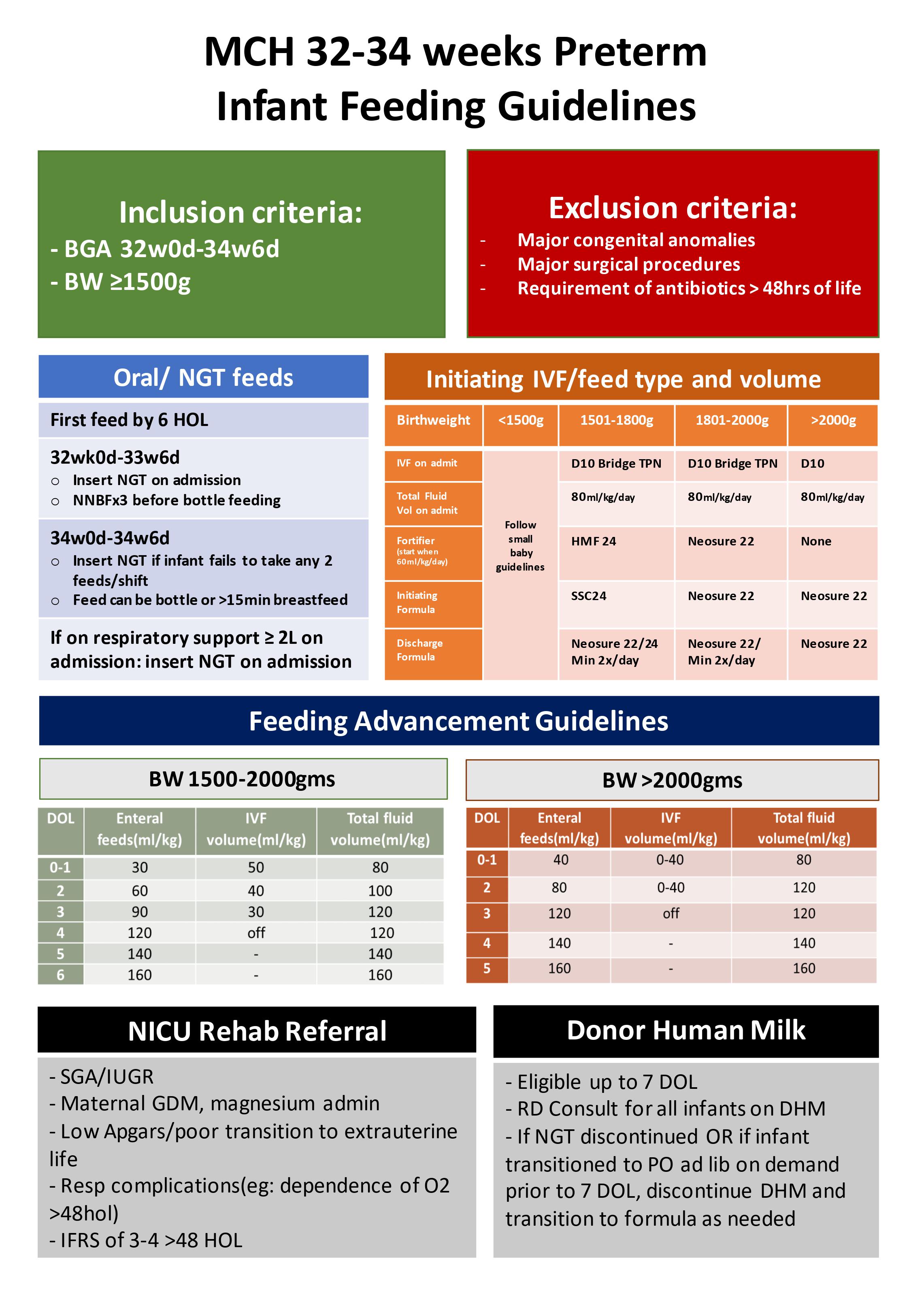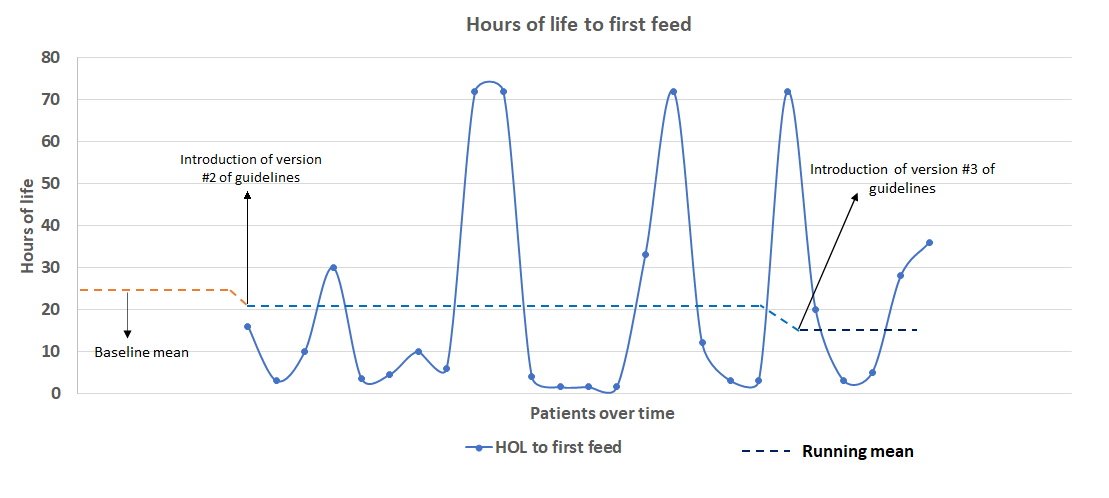Neonatal Quality Improvement
Neonatal Quality Improvement 3
730 - Nutrition Guidelines for 32-34 weeks infants: A quality improvement initiative
Publication Number: 730.342

Shruthi Janardhan, MD
Fellow, Neonatal-Perinatal Medicine
University of California, Irvine, School of Medicine
Orange, California, United States
Presenting Author(s)
Background: Infants born between 32-34 weeks gestation make up a significant portion of neonatal intensive care unit (NICU) admissions. Their prematurity poses challenges in nutrition choices, both intravenous (IV) and enteral. Some of their term like behavior combined with their immaturity poses challenges in optimal oral feeding techniques and advancements. Our unit’s heterogenous approach to nutrition in this specific population led to this quality improvement project.
Objective:
Due to a variation in feeding practices in infants born between 32-34 weeks among providers, we aimed to create a nutrition guideline to address initial fluid management, enteral nutrition, and initiation of nippling with a goal to decrease days of IV fluids, time to first enteral feed, time to full nippling intake, and subsequently length of stay.
Design/Methods: The QI is set in a 96-bed level IV NICU in an urban hospital. Participants include registered nurses, clinical nurse specialists, lactation specialists, dieticians, occupational therapists, fellows, and neonatologists. The first PDSA cycle included a chart review of all infants born at 34-34weeks in 2021 to review volume, choice, and days of IV fluids, choice of enteral feed, need for gavage feeds, days to full nipple intake, and length of stay. The second PDSA cycle included analysis of the above data and creating the nutrition guidelines to address IV fluids, enteral feeds, donor human milk (DHM), formula choice, and nippling. This was launched in September 2022. A third PDSA cycle included review of the nutrition guideline adherence and feedback from the medical staff. The resulting nutrition guidelines were extended to include infants of gestational ages 32-34 weeks. The fourth PDSA cycle included the implementation of the revised guidelines and a running analysis of outcomes between October-December 2022.
Results: Three PDSA cycles resulted in creation of our most updated guidelines (Fig 1). After the fourth PDSA cycle, we observed 100% adherence to the guideline in terms of volume and type of IV fluid initiated at birth, 80% compliance with initiation of DHM, and 100% adherence to appropriate enteral feed volume and choice. We noticed a decrease in timing of the first feed (from 0.96 to 0.75days of life), a 57% increase in use of DHM, a 22% increase in days of IV fluids, and a 16% increase in days to full enteral feeds (Fig 2).
Conclusion(s):
Implementation of standardized nutrition guidelines for infants of 32-34 week gestation has shown promising results in decreasing timing of first feed, with no significant change in days of IV fluids or days to full enteral feeds.

